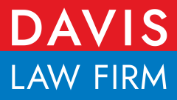“Déjà vu all over again” is a phrase commonly attributed to the baseball great Yogi Berra. It can apply in many contexts – most recently in allegations of widespread improper conduct by credit card debt collectors at JP Morgan Chase.
To a consumer bankruptcy attorney, this seems a lot like what Time magazine called “robosigner redux.” After all, state and federal regulators have only just filed the massive $25-billion settlement with five of the largest mortgage services over flawed foreclosure procedures. The problems were symbolized by the phenomenon of “robosigners.”
The term refers to fraudulent practices such as mass production of mortgage foreclosure documents. This was often done by low-level employees who did not even review what they were signing.
JPMorgan Chase was one of the banks that were part of the settlement concerning these improper foreclosure practices.
Now comes the déjà vu: Chase is being investigated for robosigning again. This time, the allegations involve the use of improper procedures in the collection of credit card debt.
Federal agents are investigating whether Chase pressured employees to approve collection documents without even confirming that the debts were valid. Linda Almonte, a former assistant vice-president at Chase, became a whistleblower after she was fired for raising concerns about this.
Almonte had questioned the absence of proofs of judgment and other missing information in the records of debts that were being sold to debt buyers. Other whistleblowers have also asserted that Chase deliberately destroyed documents favorable to debtors.
Chase may not be the only large credit card issuer that engages in such conduct, according to consumer watchdog groups.
Source: “Robosigning Redux? Regulator Probes Chase Over Credit Card Collections,” Martha C. White, Times, 3-15-12
